В английском языке время глагола в придаточном предложении

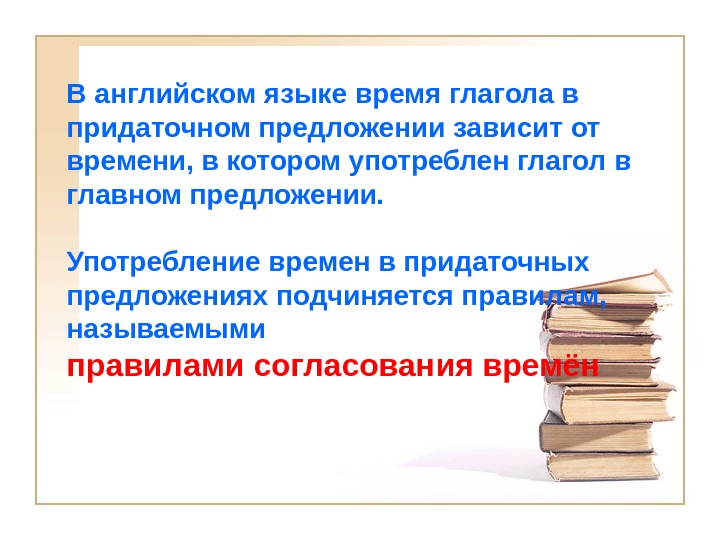
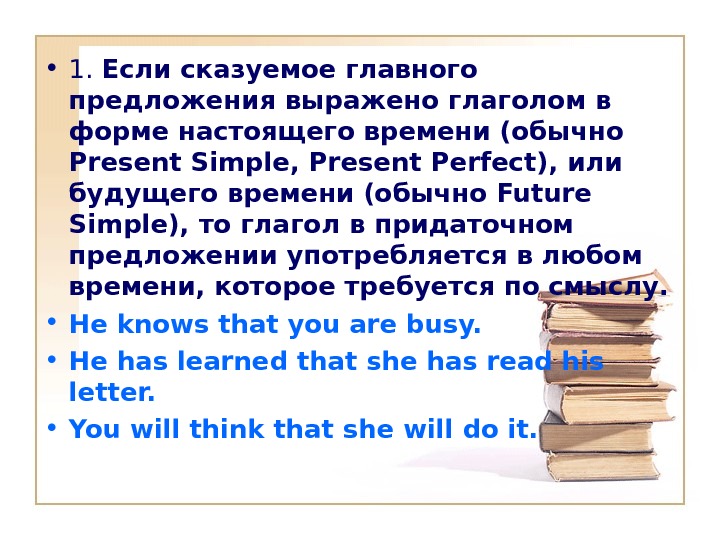
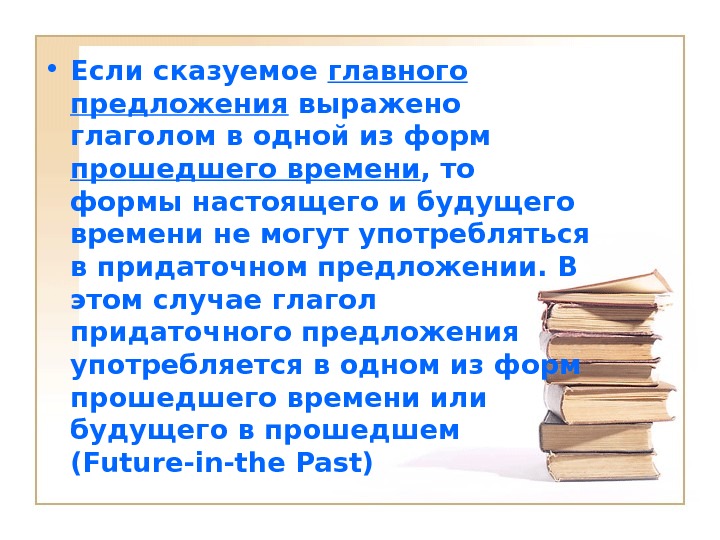
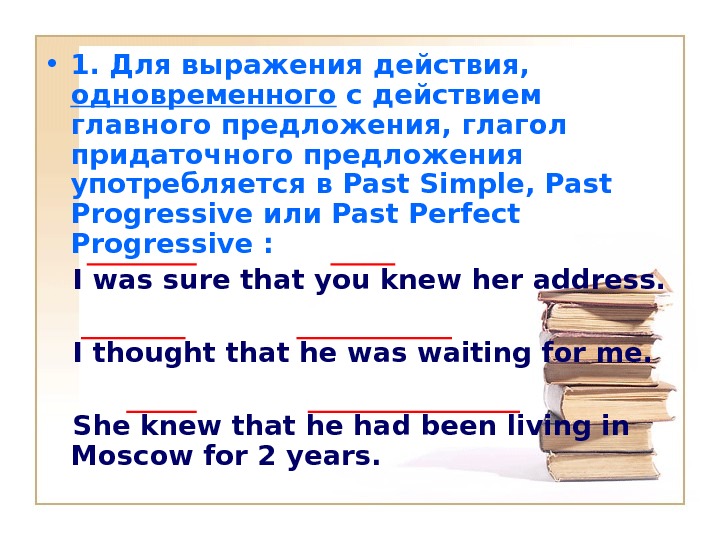
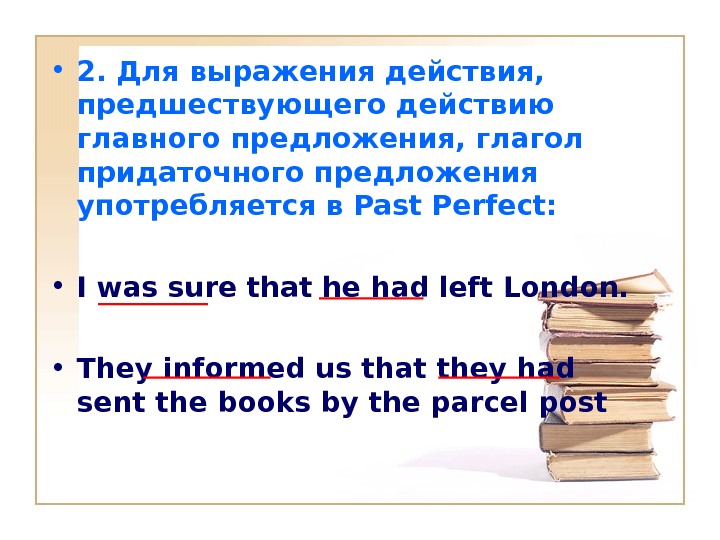
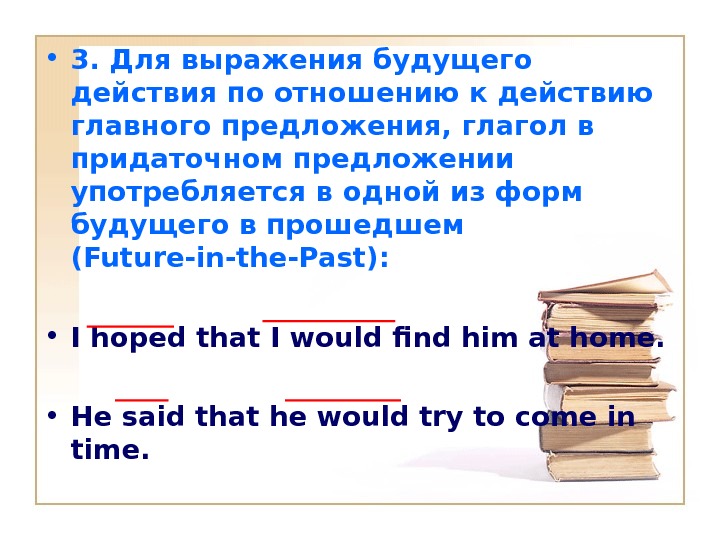
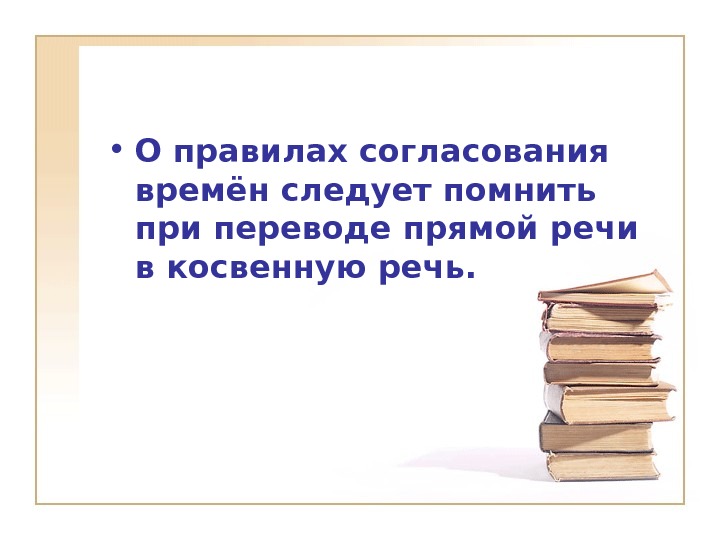
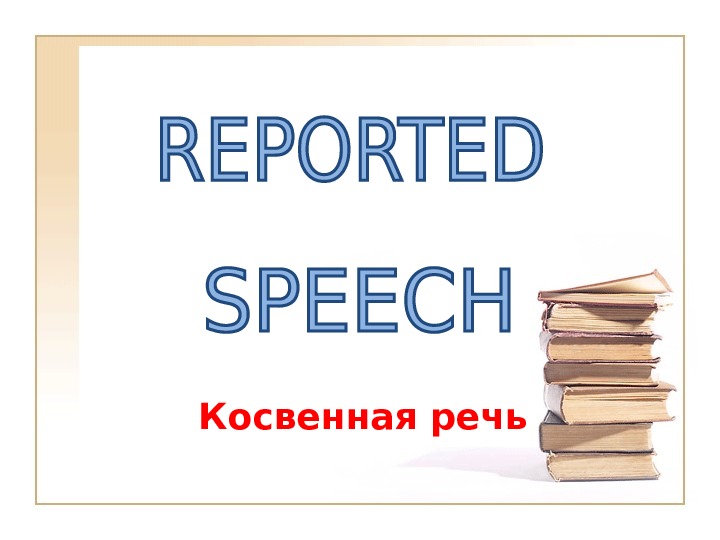

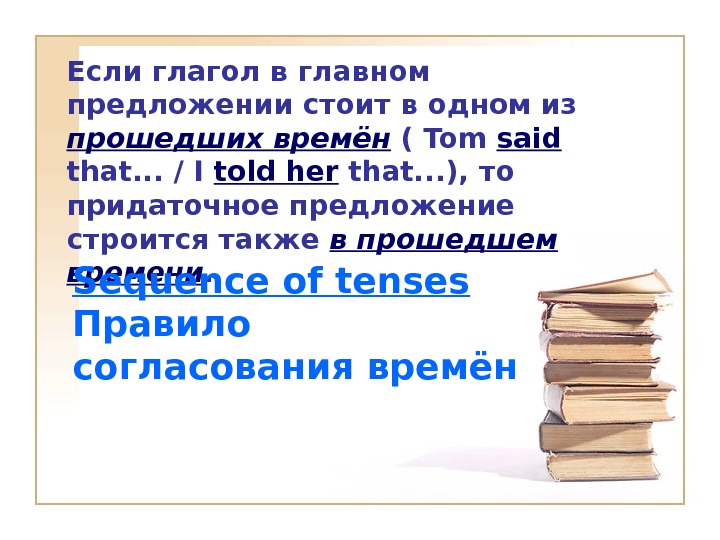
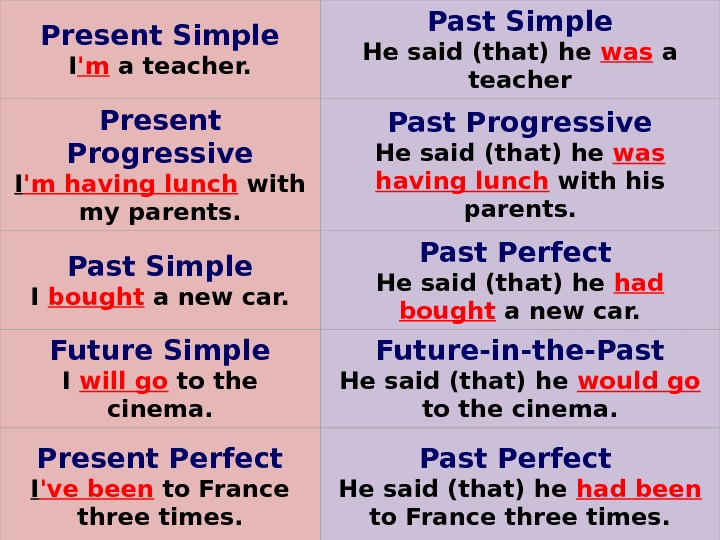
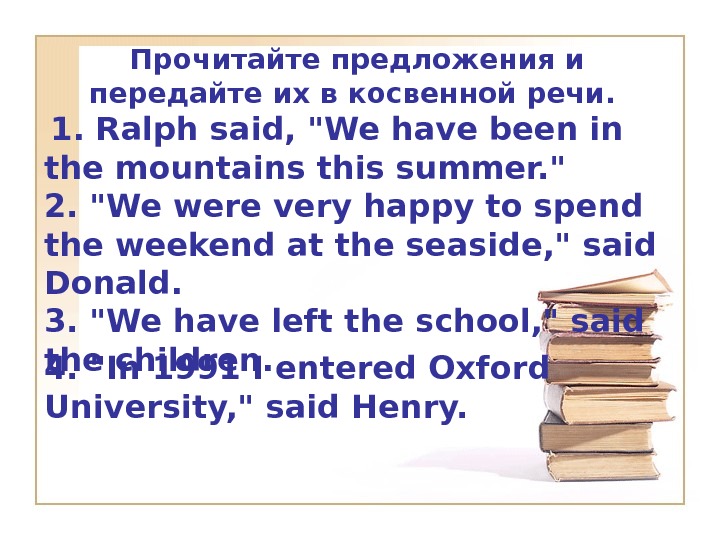
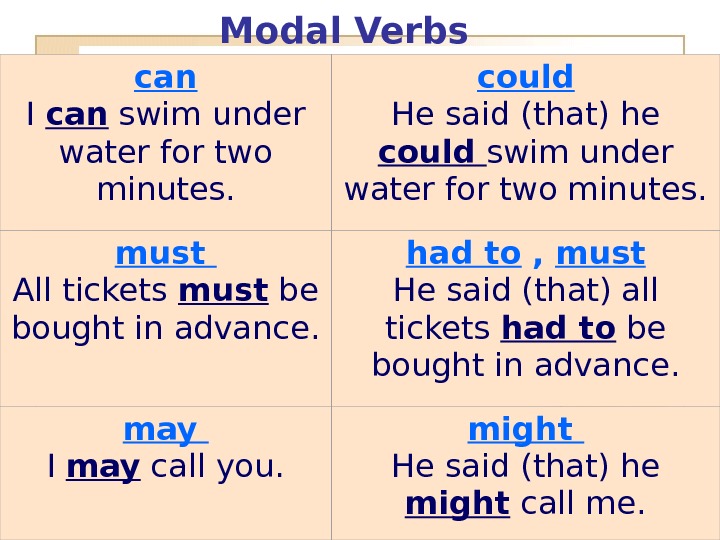
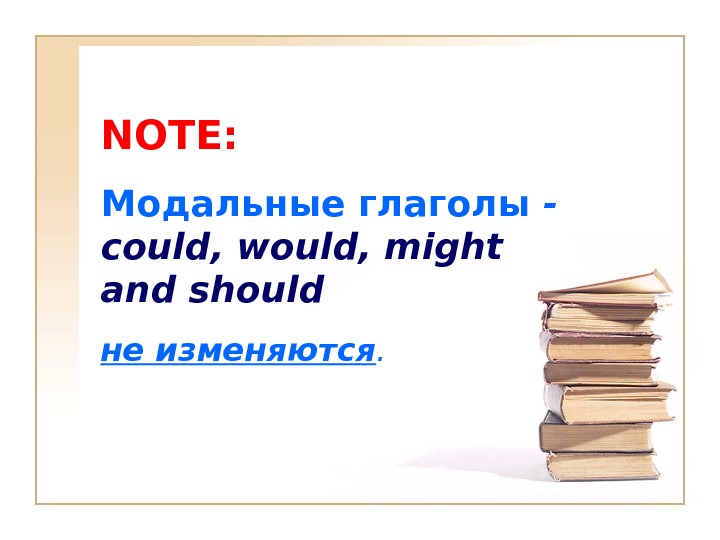
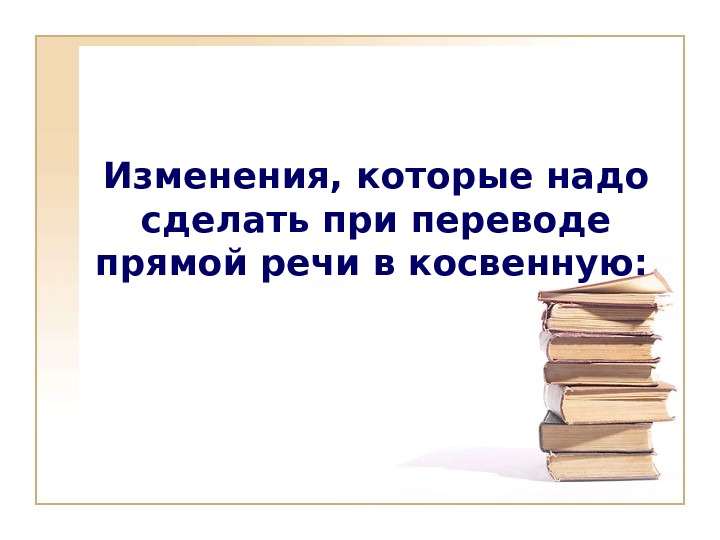
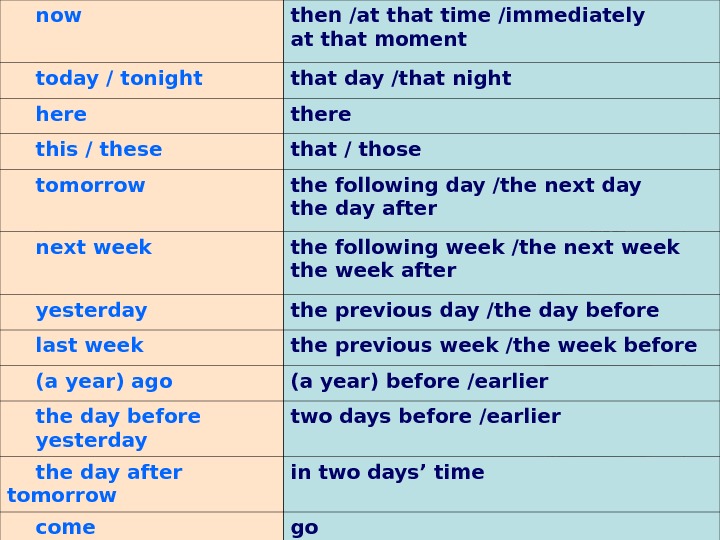
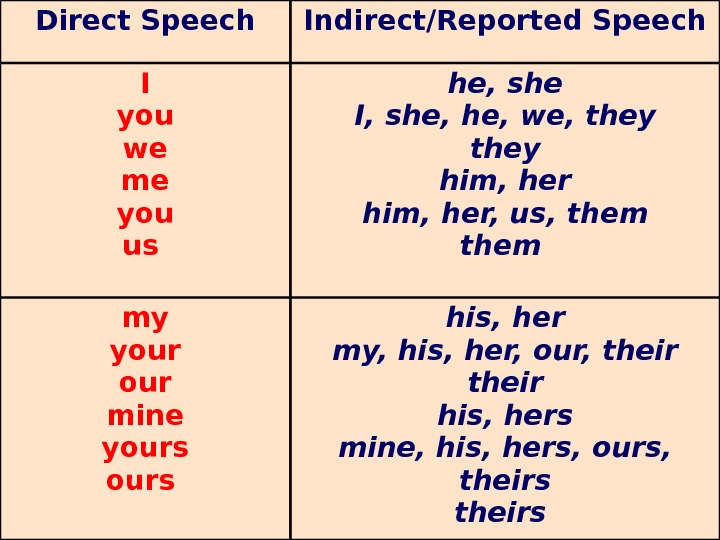
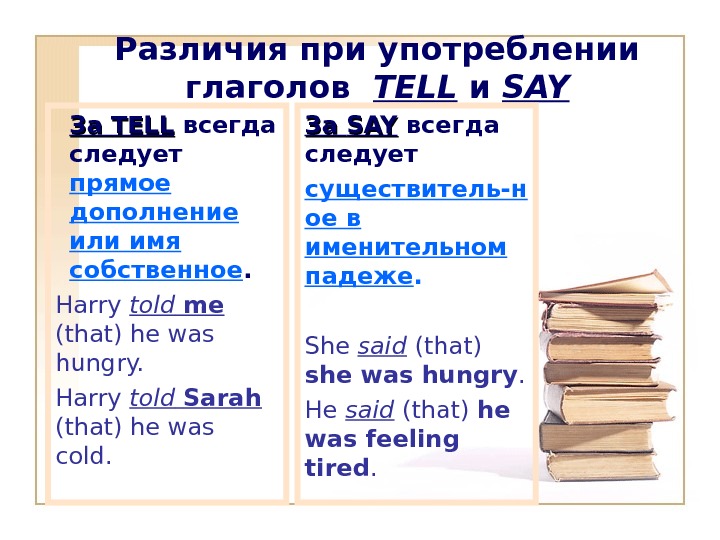
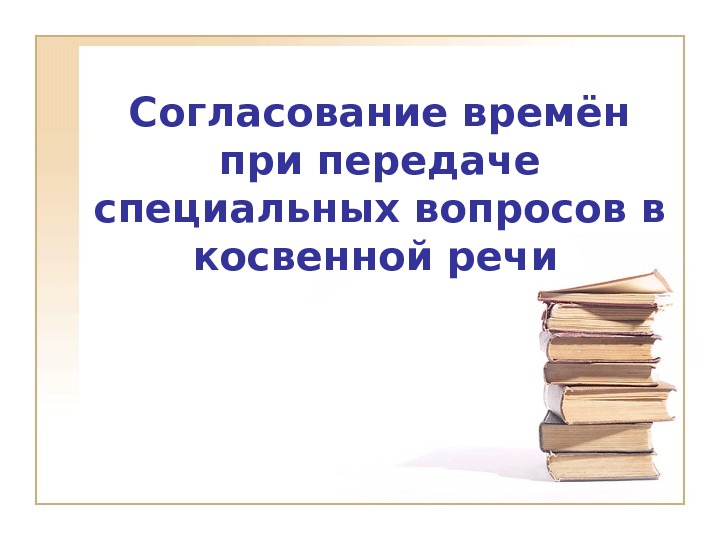
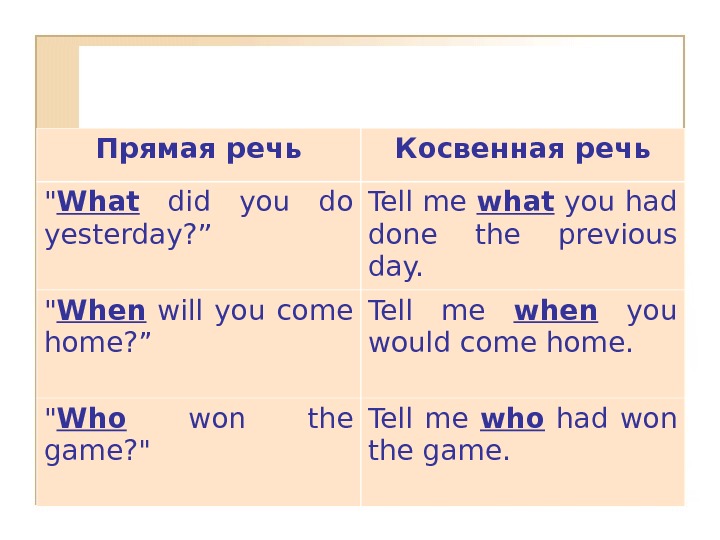
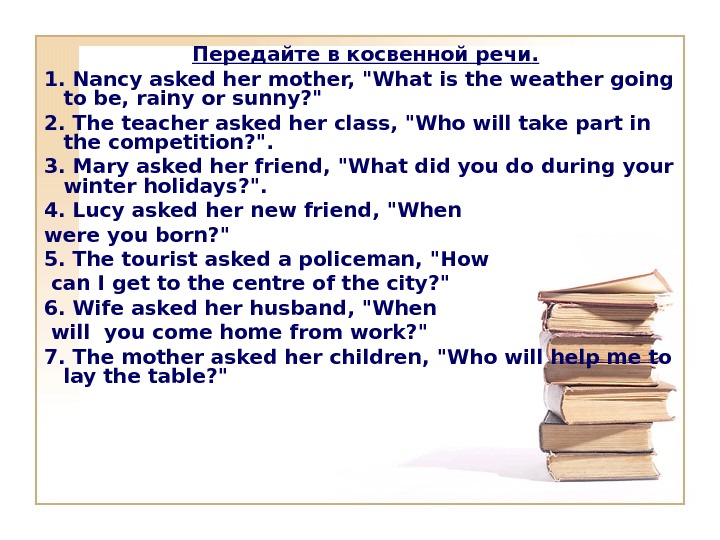
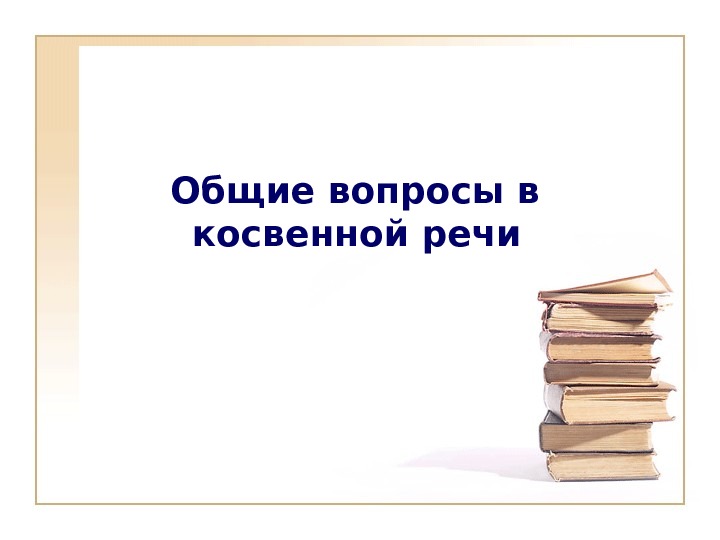
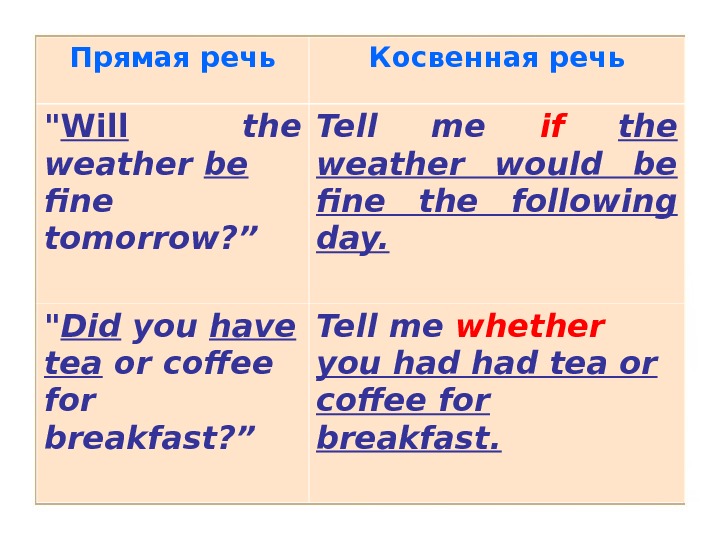
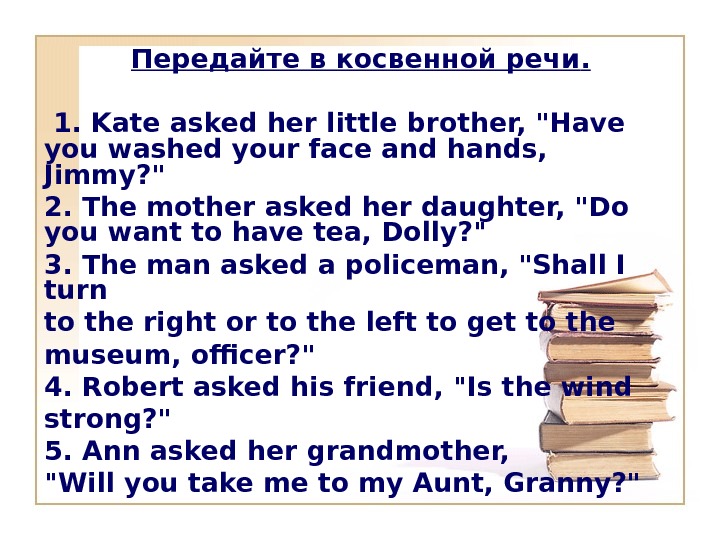
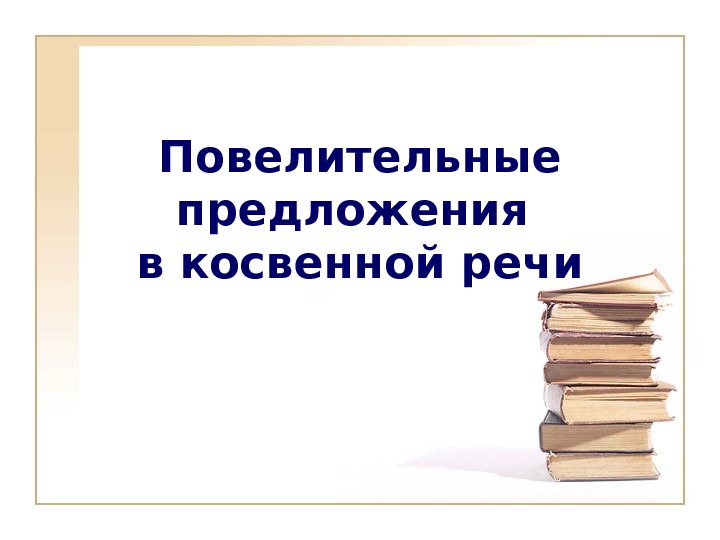
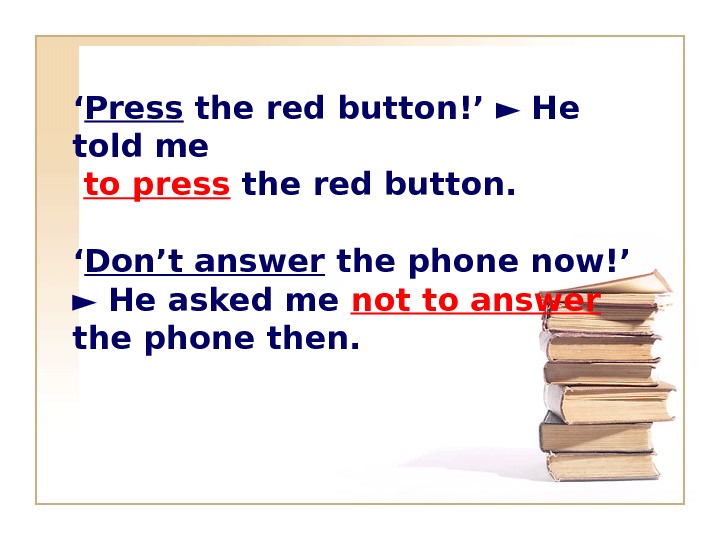
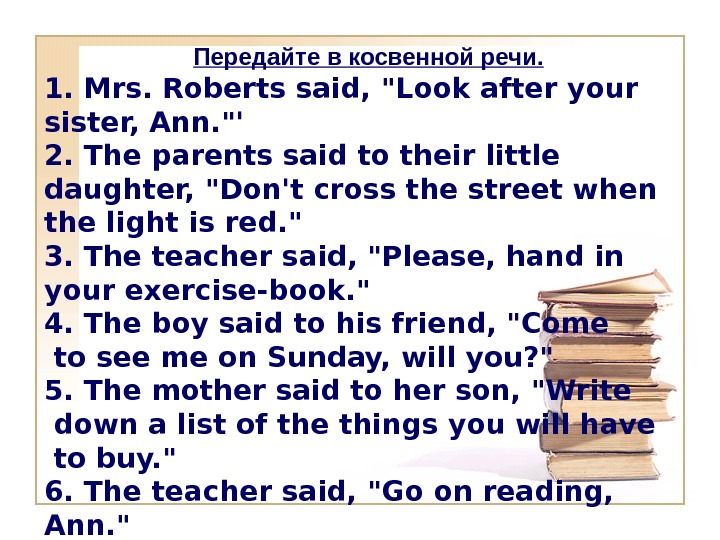
- Размер: 188.5 Кб
- Количество слайдов: 27
Описание презентации В английском языке время глагола в придаточном предложении по слайдам
 В английском языке время глагола в придаточном предложении зависит от времени, в котором употреблен глагол в главном предложении. Употребление времен в придаточных предложениях подчиняется правилам, называемыми правилами согласования времён
В английском языке время глагола в придаточном предложении зависит от времени, в котором употреблен глагол в главном предложении. Употребление времен в придаточных предложениях подчиняется правилам, называемыми правилами согласования времён
 • 1. Если сказуемое главного предложения выражено глаголом в форме настоящего времени (обычно Present Simple, Present Perfect) , или будущего времени (обычно Future Simple), то глагол в придаточном предложении употребляется в любом времени, которое требуется по смыслу. • He knows that you are busy. • He has learned that she has read his letter. • You will think that she will do it.
• 1. Если сказуемое главного предложения выражено глаголом в форме настоящего времени (обычно Present Simple, Present Perfect) , или будущего времени (обычно Future Simple), то глагол в придаточном предложении употребляется в любом времени, которое требуется по смыслу. • He knows that you are busy. • He has learned that she has read his letter. • You will think that she will do it.
 • Если сказуемое главного предложения выражено глаголом в одной из форм прошедшего времени , то формы настоящего и будущего времени не могут употребляться в придаточном предложении. В этом случае глагол придаточного предложения употребляется в одном из форм прошедшего времени или будущего в прошедшем ( Future-in-the Past)
• Если сказуемое главного предложения выражено глаголом в одной из форм прошедшего времени , то формы настоящего и будущего времени не могут употребляться в придаточном предложении. В этом случае глагол придаточного предложения употребляется в одном из форм прошедшего времени или будущего в прошедшем ( Future-in-the Past)
 • 1. Для выражения действия, одновременного с действием главного предложения, глагол придаточного предложения употребляется в Past Simple, Past Progressive или Past Perfect Progressive : I was sure that you knew her address. I thought that he was waiting for me. She knew that he had been living in Moscow for 2 years.
• 1. Для выражения действия, одновременного с действием главного предложения, глагол придаточного предложения употребляется в Past Simple, Past Progressive или Past Perfect Progressive : I was sure that you knew her address. I thought that he was waiting for me. She knew that he had been living in Moscow for 2 years.
 • 2. Для выражения действия, предшествующего действию главного предложения, глагол придаточного предложения употребляется в Past Perfect: • I was sure that he had left London. • They informed us that they had sent the books by the parcel post
• 2. Для выражения действия, предшествующего действию главного предложения, глагол придаточного предложения употребляется в Past Perfect: • I was sure that he had left London. • They informed us that they had sent the books by the parcel post
 • 3. Для выражения будущего действия по отношению к действию главного предложения, глагол в придаточном предложении употребляется в одной из форм будущего в прошедшем ( Future-in-the-Past): • I hoped that I would find him at home. • He said that he would try to come in time.
• 3. Для выражения будущего действия по отношению к действию главного предложения, глагол в придаточном предложении употребляется в одной из форм будущего в прошедшем ( Future-in-the-Past): • I hoped that I would find him at home. • He said that he would try to come in time.
 • О правилах согласования времён следует помнить при переводе прямой речи в косвенную речь.
• О правилах согласования времён следует помнить при переводе прямой речи в косвенную речь.
 Косвенная речь
Косвенная речь
 Мы можем передавать чужую речь, используя прямую речь или косвенную речь. ‘ I’m tired!’, Helen said (that) she was tired.
Мы можем передавать чужую речь, используя прямую речь или косвенную речь. ‘ I’m tired!’, Helen said (that) she was tired.
 Если глагол в главном предложении стоит в одном из прошедших времён ( Tom said that. . . / I told her that. . . ) , то придаточное предложение строится также в прошедшем времени. Sequence of tenses Правило согласования времён
Если глагол в главном предложении стоит в одном из прошедших времён ( Tom said that. . . / I told her that. . . ) , то придаточное предложение строится также в прошедшем времени. Sequence of tenses Правило согласования времён
 Present Simple I ‘m a teacher. Past Simple He said (that) he was a teacher Present Progressive I ‘m having lunch with my parents. Past Progressive He said (that) he was having lunch with his parents. Past Simple I bought a new car. Past Perfect He said (that) he had bought a new car. Future Simple I will go to the cinema. Future-in-the-Past He said (that) he would go to the cinema. Present Perfect I ‘ve been to France three times. Past Perfect He said (that) he had been to France three times.
Present Simple I ‘m a teacher. Past Simple He said (that) he was a teacher Present Progressive I ‘m having lunch with my parents. Past Progressive He said (that) he was having lunch with his parents. Past Simple I bought a new car. Past Perfect He said (that) he had bought a new car. Future Simple I will go to the cinema. Future-in-the-Past He said (that) he would go to the cinema. Present Perfect I ‘ve been to France three times. Past Perfect He said (that) he had been to France three times.
 Прочитайте предложения и передайте их в косвенной речи. 1. Ralph said, «We have been in the mountains this summer. » 2. «We were very happy to spend the weekend at the seaside, » said Donald. 3. «We have left the school, » said the children. 4. «In 1991 I entered Oxford University, » said Henry.
Прочитайте предложения и передайте их в косвенной речи. 1. Ralph said, «We have been in the mountains this summer. » 2. «We were very happy to spend the weekend at the seaside, » said Donald. 3. «We have left the school, » said the children. 4. «In 1991 I entered Oxford University, » said Henry.
 Modal Verbs can I can swim under water for two minutes. could He said (that) he could swim under water for two minutes. must All tickets must be bought in advance. had to , must He said (that) all tickets had to be bought in advance. may I may call you. might He said (that) he might call me.
Modal Verbs can I can swim under water for two minutes. could He said (that) he could swim under water for two minutes. must All tickets must be bought in advance. had to , must He said (that) all tickets had to be bought in advance. may I may call you. might He said (that) he might call me.
 NOTE: Модальные глаголы — could, would, might and should не изменяются.
NOTE: Модальные глаголы — could, would, might and should не изменяются.
 Изменения, которые надо сделать при переводе прямой речи в косвенную:
Изменения, которые надо сделать при переводе прямой речи в косвенную:
 now then / at that time /immediately at that moment today / tonight that day /that night here this / these that / those tomorrow the following day /the next day the day after next week the following week /the next week the week after yesterday the previous day /the day before last week the previous week /the week before (a year) ago (a year) before /earlier the day before yesterday two days before /earlier the day after tomorrow in two days’ time come go
now then / at that time /immediately at that moment today / tonight that day /that night here this / these that / those tomorrow the following day /the next day the day after next week the following week /the next week the week after yesterday the previous day /the day before last week the previous week /the week before (a year) ago (a year) before /earlier the day before yesterday two days before /earlier the day after tomorrow in two days’ time come go
 Direct Speech Indirect/Reported Speech I you we me you us he, she I, she, we, they him, her, us, them my your mine yours his, her my, his, her, our, their his, hers mine, his, hers, ours, theirs
Direct Speech Indirect/Reported Speech I you we me you us he, she I, she, we, they him, her, us, them my your mine yours his, her my, his, her, our, their his, hers mine, his, hers, ours, theirs
 Различия при употреблении глаголов TELL и SAY За За TELL всегда следует прямое дополнение или имя собственное. Harry told me (that) he was hungry. Harry told Sarah (that) he was cold. За За SAYSAY всегда следует существитель-н ое в именительном падеже. She said (that) she was hungry. He said (that) he was feeling tired.
Различия при употреблении глаголов TELL и SAY За За TELL всегда следует прямое дополнение или имя собственное. Harry told me (that) he was hungry. Harry told Sarah (that) he was cold. За За SAYSAY всегда следует существитель-н ое в именительном падеже. She said (that) she was hungry. He said (that) he was feeling tired.
 Согласование времён при передаче специальных вопросов в косвенной речи
Согласование времён при передаче специальных вопросов в косвенной речи
 Прямая речь Косвенная речь » What did you do yesterday? ” Tell me what you had done the previous day. » When will you come home? ” Tell me when you would come home. » Who won the game? » Tell me who had won the game.
Прямая речь Косвенная речь » What did you do yesterday? ” Tell me what you had done the previous day. » When will you come home? ” Tell me when you would come home. » Who won the game? » Tell me who had won the game.
 Передайте в косвенной речи. 1. Nancy asked her mother, «What is the weather going to be, rainy or sunny? » 2. The teacher asked her class, «Who will take part in the competition? «. 3. Mary asked her friend, «What did you do during your winter holidays? «. 4. Lucy asked her new friend, «When were you born? » 5. The tourist asked a policeman, «How can I get to the centre of the city? » 6. Wife asked her husband, «When will you come home from work? » 7. The mother asked her children, «Who will help me to lay the table? «
Передайте в косвенной речи. 1. Nancy asked her mother, «What is the weather going to be, rainy or sunny? » 2. The teacher asked her class, «Who will take part in the competition? «. 3. Mary asked her friend, «What did you do during your winter holidays? «. 4. Lucy asked her new friend, «When were you born? » 5. The tourist asked a policeman, «How can I get to the centre of the city? » 6. Wife asked her husband, «When will you come home from work? » 7. The mother asked her children, «Who will help me to lay the table? «
 Общие вопросы в косвенной речи
Общие вопросы в косвенной речи
 Прямая речь Косвенная речь » Will the weather be fine tomorrow? ” Tell me if the weather would be fine the following day. » Did you have tea or coffee for breakfast? ” Tell me whether you had tea or coffee for breakfast.
Прямая речь Косвенная речь » Will the weather be fine tomorrow? ” Tell me if the weather would be fine the following day. » Did you have tea or coffee for breakfast? ” Tell me whether you had tea or coffee for breakfast.
 Передайте в косвенной речи. 1. Kate asked her little brother, «Have you washed your face and hands, Jimmy? » 2. The mother asked her daughter, «Do you want to have tea, Dolly? » 3. The man asked a policeman, «Shall I turn to the right or to the left to get to the museum, officer? » 4. Robert asked his friend, «Is the wind strong? » 5. Ann asked her grandmother, «Will you take me to my Aunt, Granny? «
Передайте в косвенной речи. 1. Kate asked her little brother, «Have you washed your face and hands, Jimmy? » 2. The mother asked her daughter, «Do you want to have tea, Dolly? » 3. The man asked a policeman, «Shall I turn to the right or to the left to get to the museum, officer? » 4. Robert asked his friend, «Is the wind strong? » 5. Ann asked her grandmother, «Will you take me to my Aunt, Granny? «
 Повелительные предложения в косвенной речи
Повелительные предложения в косвенной речи
 ‘ Press the red button!’ ► He told me to press the red button. ‘ Don’t answer the phone now!’ ► He asked me not to answer the phone then.
‘ Press the red button!’ ► He told me to press the red button. ‘ Don’t answer the phone now!’ ► He asked me not to answer the phone then.
 Передайте в косвенной речи. 1. Mrs. Roberts said, «Look after your sister, Ann. «‘ 2. The parents said to their little daughter, «Don’t cross the street when the light is red. » 3. The teacher said, «Please, hand in your exercise-book. » 4. The boy said to his friend, «Come to see me on Sunday, will you? » 5. The mother said to her son, «Write down a list of the things you will have to buy. » 6. The teacher said, «Go on reading, Ann. «
Передайте в косвенной речи. 1. Mrs. Roberts said, «Look after your sister, Ann. «‘ 2. The parents said to their little daughter, «Don’t cross the street when the light is red. » 3. The teacher said, «Please, hand in your exercise-book. » 4. The boy said to his friend, «Come to see me on Sunday, will you? » 5. The mother said to her son, «Write down a list of the things you will have to buy. » 6. The teacher said, «Go on reading, Ann. «

